Your cat meows all day and/or all night? The meowing of our cats is cute and heartwarming, but when it becomes persistent, it can quickly become stressful. Why does my cat meow all the time? What can I do to stop the meowing? Answers in this article.
Why does my cat meow all the time?
Meow, meow, meow… Your little cat meows all the time. And it's starting to drive you crazy. We understand, hearing your cat meowing 24/7, almost non-stop, is very annoying. But why is your cat meowing like that?
Meowing, a natural communication method
Except for mothers with their kittens or during heat to attract males, our cats rarely use meowing to communicate with each other.
When your cat meows, it's to attract your attention and communicate with you. We wish we could decode its meows and even respond to it! Some cats, like Bengals and Maine Coons are very communicative; they love to share long conversations with us, and they must think we're completely missing the point!
Your cat meows out of hunger or frustration
Like spoiled children, many cats do not hesitate to meow until they get what they want. And even if it's not mealtime, your beloved cat may meow until their servant (you, in this case) decides to serve them. Be careful, if you give in once, they will remember that their technique worked and won't hesitate to try again...!
However, note that their demands aren't always just about greed! Your cat may (really) be hungry - their kibble and/or wet food may not be nutritious enough.
This is the problem with industrial food that doesn't meet our cats' nutritional needs: poor quality animal proteins with little nutritional value, and excessive amounts of carbohydrates.
How to choose a quality cat food? On our blog, we share several tips for selecting the best cat kibble, kibble rich in quality proteins.
Your cat may also feel very frustrated because you only feed them two meals a day. Remember that cats are little graze-eaters. In the wild, they hunt and consume an average of 16 small meals a day. If your little companion only eats twice a day, they may feel frustrated and meow constantly throughout the day.
Meowing due to boredom or loneliness
Unlike dogs, cats are independent animals that manage well during long periods of solitude. But some cats are more sensitive than others and may suffer from loneliness.
Boredom in cats can manifest in different ways. Some felines will spend their time eating and sleeping, while others may adopt aggressive behavior. Swatting, scratching… Even furniture gets damaged. This boredom can also be expressed through incessant meowing. If you're not around enough (repeated absences, little interaction with them), they will let you know by meowing constantly.
Meowing due to a dirty or poorly placed litter box
If you don't understand why your cat is meowing, it might be wise to check the cleanliness of their litter box. Some cats have very specific requirements when it comes to their toilets, and if they find their box too dirty, they will let you know by grumbling!
Note that if your cat considers their litter box too dirty, they may go elsewhere, or even hold it in. This can be dangerous for their health. As explained in our article the best litter for your cat, a cat that holds it in is susceptible to developing urinary issues. These include cystitis, a painful lower urinary tract disease.
Health issues: when meowing becomes a symptom
If the meowing suddenly appears, without apparent reason, and you notice a general change in your cat's behavior, it's advisable to make an appointment with your veterinarian. They can ensure that your little companion is not sick and is not suffering.
If your cat meows only when using the litter box, for example, they may be experiencing pain at that moment, so it's a good idea to discuss it with your veterinarian.
Stress or anxiety meowing
Scratching furniture, urinary marking, compulsive licking, or persistent meowing... These behaviors may indicate that your cat is stressed. Stress in cats is common: even the smallest change or novelty can upset them. It could also mean that they feel alone or that they're overwhelmed by something and can't isolate themselves as they would like.
Meowing in females during heat
During their heat cycle, which can last several days, females emit rough and very loud vocalizations. It is strongly recommended to have your cat, both male and female, spayed to prevent unwanted litters and disruptive behaviors like meowing due to heat, running away, or urinary marking.
Cat breeds that meow more than others
Some cat breeds meow more than others; we can even say they're real chatterboxes! This is the case with breeds like the Balinese, Bengal, Siamese, Tonkinois, and Japanese Bobtail. The Maine Coon is also known for communicating a lot with humans: they meow to say hello, I love you, or just to say "oh, you're here, that's nice." The Maine Coon is a real chatterbox, with a repertoire of 63 sounds. It is said that they purr more than meow.

How to reduce excessive meowing in cats?
If a health issue is ruled out, there are several solutions available to you.
Unwanted meowing can quickly become a problem. Some cats even meow and scratch at the door at night until they're let into the bedroom. If your cat gets into the habit of waking you up in the middle of the night, you can try a simple "No" in a firm tone, as our cats often understand this very well.
Always have a clean and suitable litter box
Sometimes it is useful to check that your little cat's needs are being met. Make sure it has easy access to its water bowl, both day and night, and that it always has a clean... and suitable litter box! Some cats are particularly picky about their litter; it needs to be clean, but also comfortable for their paws and pleasant for their nose.
At Ziggy, we offer a compostable, biodegradable, and ultra-absorbent (up to +250%) plant-based litter, made from crushed softwood pellets. No more litter sticking to your cat's paws or fur! Our litter for cats (made in France) brings joy to both cats and their parents. 😻
Offer a high-quality cat food
As mentioned above, hunger can be the reason for excessive meowing. Even if you are giving your cat enough dry food, it may not be nutritious enough.
For your little cat, we recommend choosing food that contains sufficient animal proteins, especially high-quality proteins. To learn more, feel free to check out our article on proteins in your cat’s diet. We explain everything!
To promote satiety, we recommend choosing wet food. Due to its high moisture content, it adds volume to the stomach. Additionally, it is lower in calories than dry food! Your cat can enjoy it without the calories!
At Ziggy, our wet food for cats is very rich in proteins (+60%)... of the highest quality! We do not use reconstituted meat, mechanically separated meat (MSM), or animal "waste" like carcasses, skin, feathers, or bones. You’ll only find real muscle pieces and noble offal (chicken, beef, pork).
Offer your cat multiple small meals a day
As for its daily ration, don't hesitate to divide it into several small meals (at least four) that are served at fixed times. Dividing your cat’s meals is ideal for:
- Its overall health. You should limit the daily amount to its exact need to avoid the risk of overweight and obesity.
- Its urinary health. Dividing meals promotes good urinary health. After a meal, urine tends to become more alkaline. This is due to the urinary compensation for gastric acids lost during digestion. The larger the meal, the higher the alkalization, thus favoring the formation of urinary crystals.
- Its mental health. Remember, our cats are little nibblers. In the wild, they hunt and eat an average of 16 small meals a day. If your cat only eats twice a day, it may feel frustrated and meow constantly throughout the day.
For example, for a ¾ wet and ¼ dry diet: you can give wet food in 3 or 4 meals (morning upon waking, before leaving the house, upon returning, and later in the evening) and give our delicious dry cat food in a play device (filled with some dry food for the day and some for the night).

Spend time and interact with your cat
Finally, don't forget to spend time with your cat, play with it and cuddle it. Your furry friend may feel neglected and experience an emotional void, which they will express through repetitive meowing to try and grab your attention!
Toys and hiding places to prevent boredom in your cat
If your cat doesn't have access to the outside and you’re often away, you can mentally and physically stimulate it by providing toys or hiding places. For example, you can use cardboard boxes, our cats love cardboard boxes! And even more so our Ziggy cardboard boxes, which can turn into a little house or a Catmobile.

Also, consider giving them a small window access so they can observe the outside. Our cats love watching and analyzing their environment. They are little concierges!
And even though it might be tempting, it’s unnecessary to get angry and shout at your cat. Yes, it’s not pleasant when your cat’s meowing feels like it’s going to burst your eardrums, but remember, it’s just trying to communicate with you!
My cat meows at night: why and what to do?
Some cats are particularly active at night when we are in the arms of Morpheus. Like many other felines, our little furballs are crepuscular, active at dawn and dusk. Their wild ancestors used to sleep all day to prepare for hunting—a task that requires a lot of effort. Our companions have largely kept this habit, even if they only hunt balls in the living room.
If your cat sleeps during the day but is disturbing your sleep all night, try all the solutions mentioned earlier. With time, its incessant meowing will likely stop.
And a little tip from cat owners: try not to close the door to your bedroom. Your furry friend might just want to be with you.
When should you consult a veterinarian for excessive meowing?
As mentioned earlier, a visit to your vet is important when meowing starts suddenly, with no apparent reason, and especially if you notice abnormal changes in behavior. Its meowing may indicate pain.


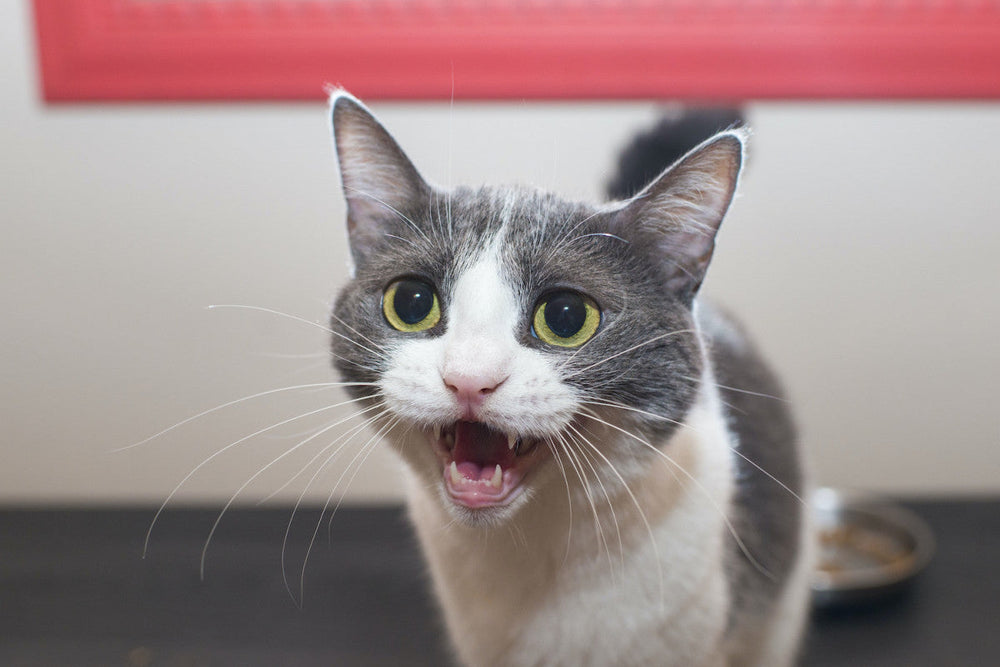

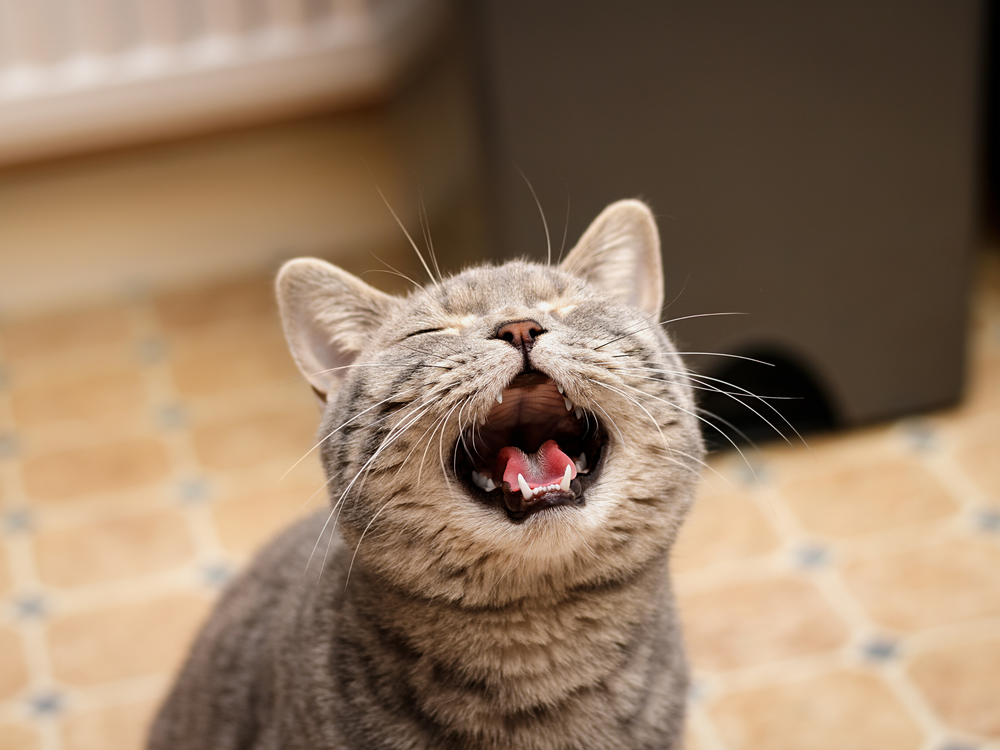
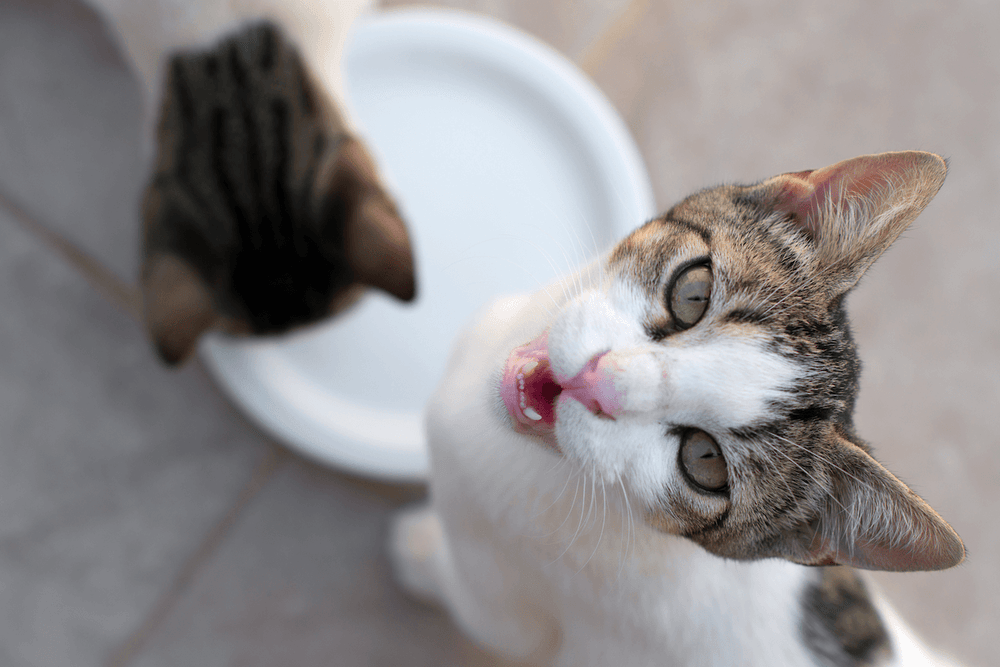
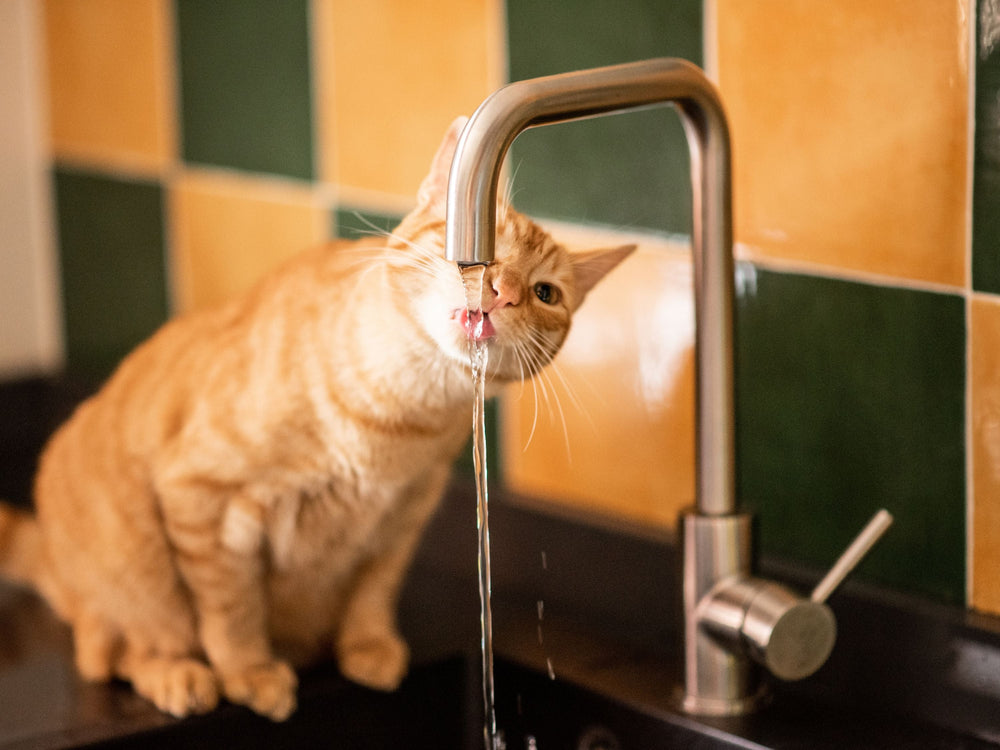
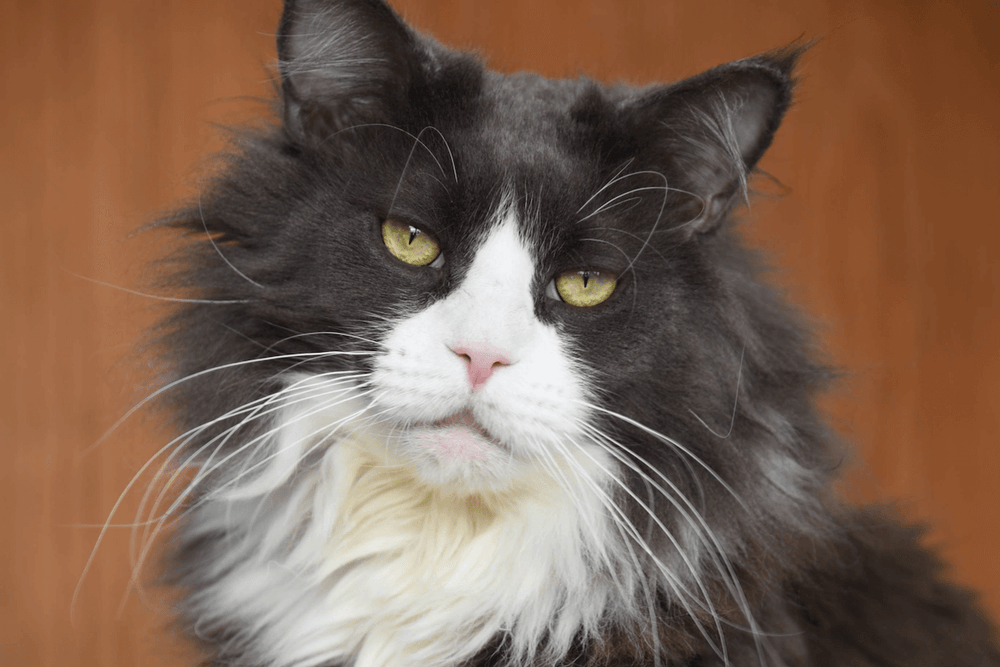
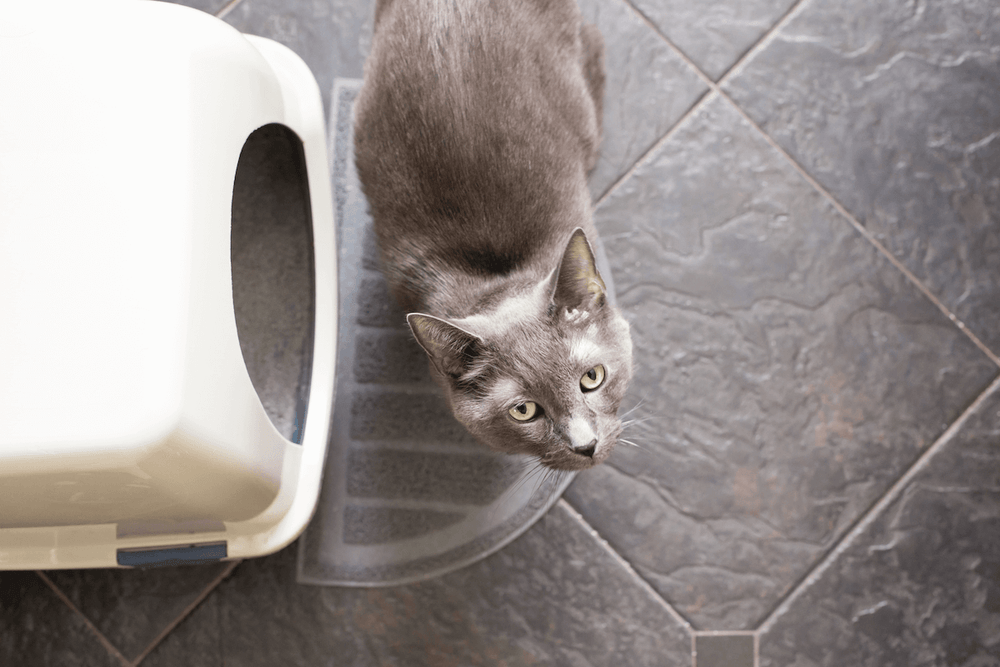
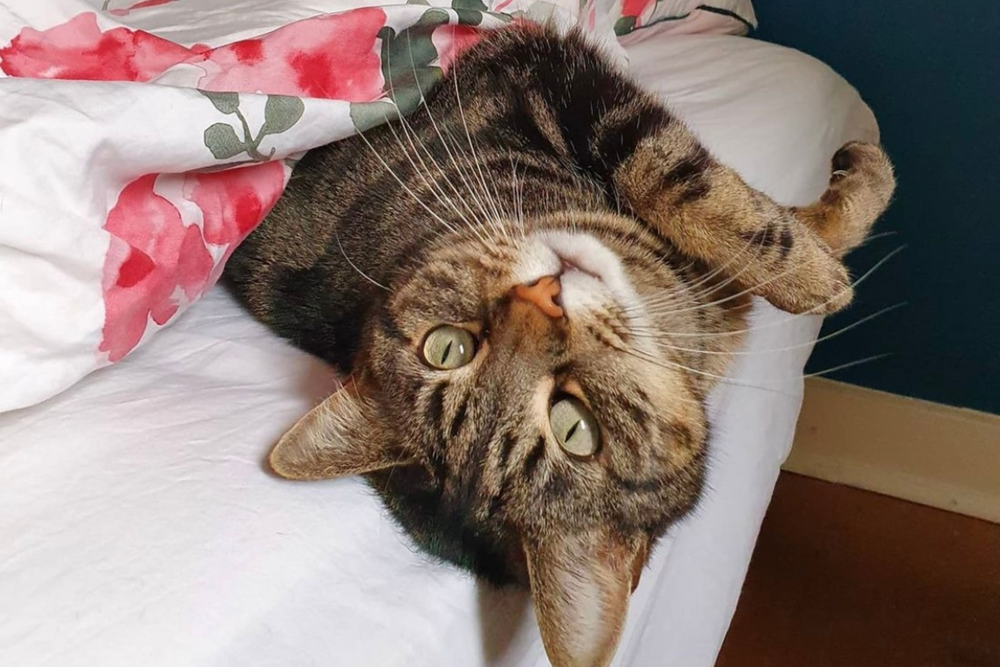
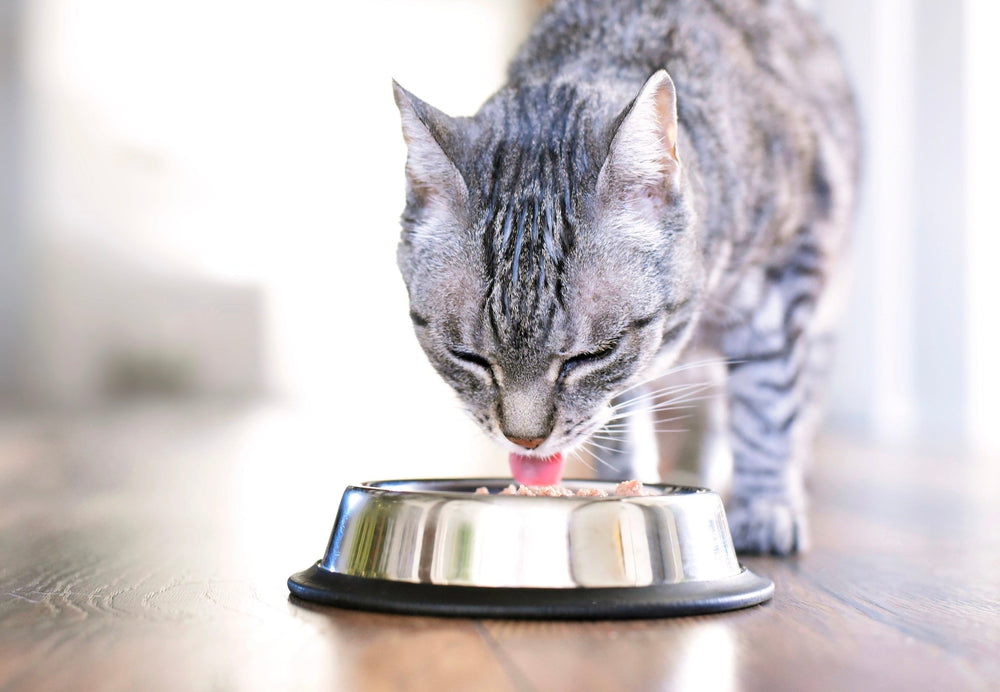
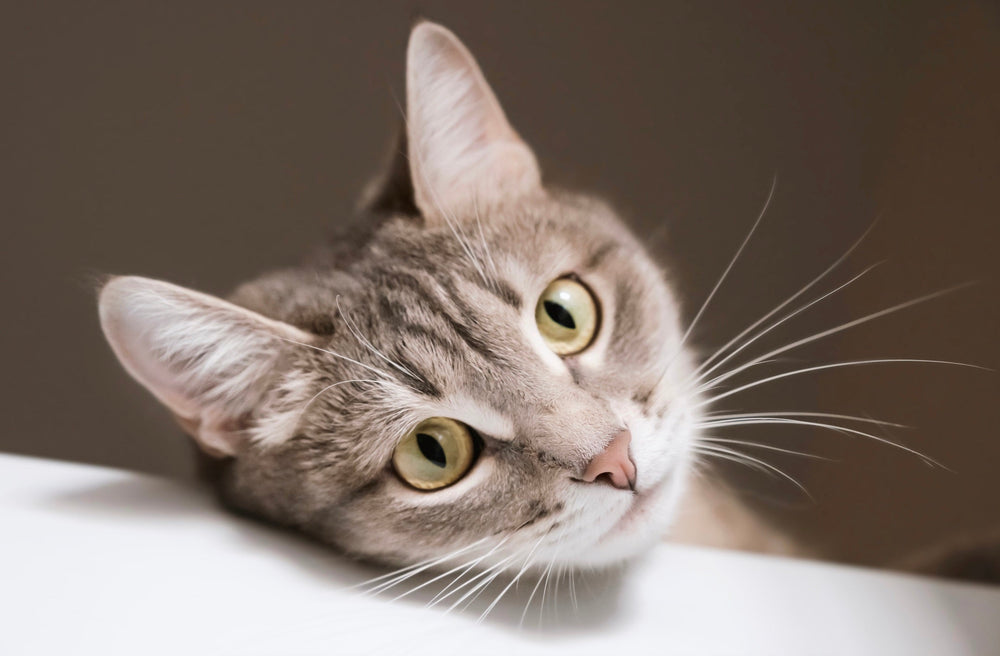
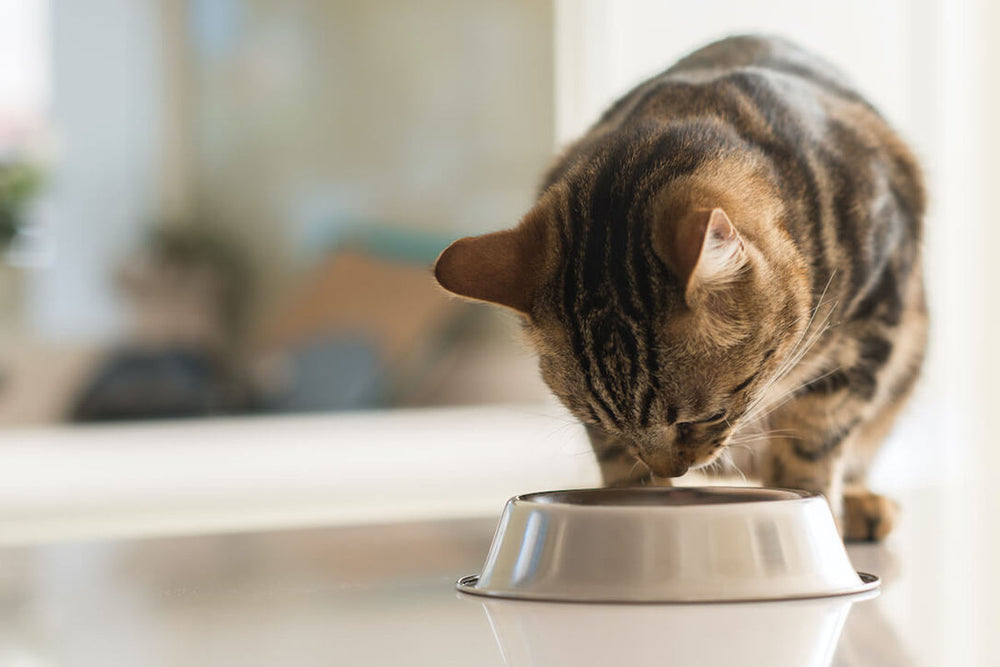
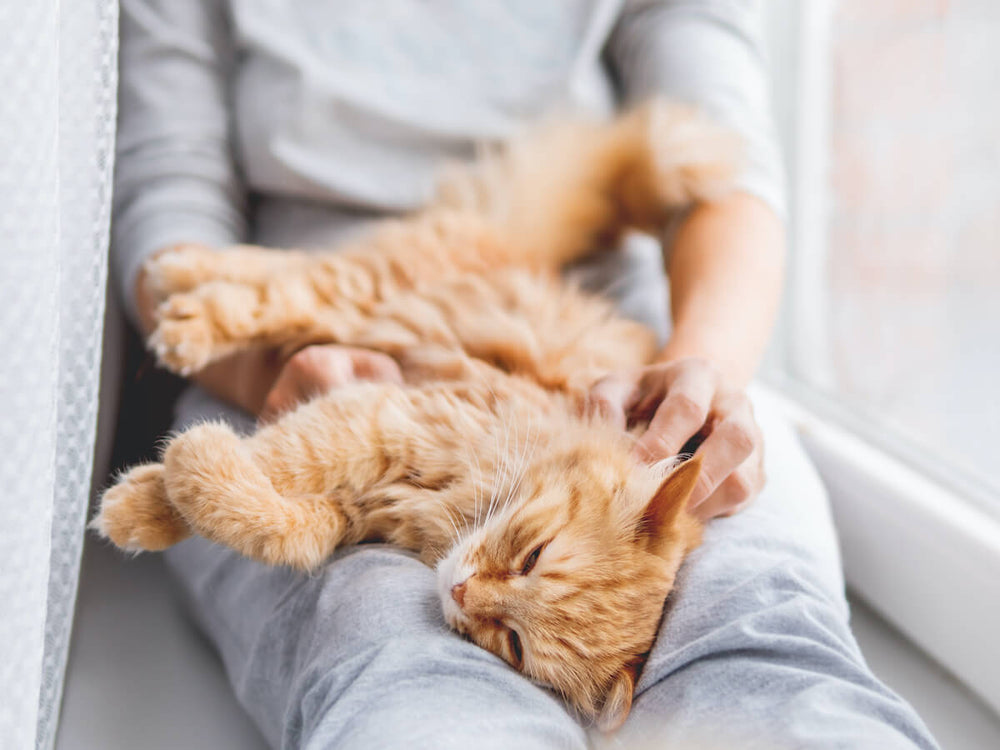
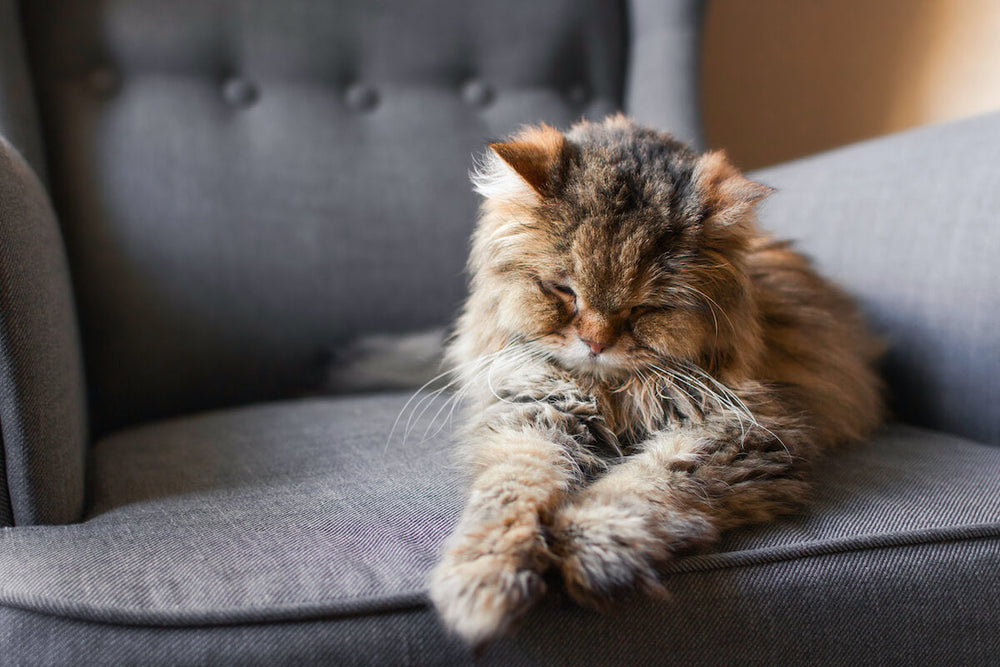
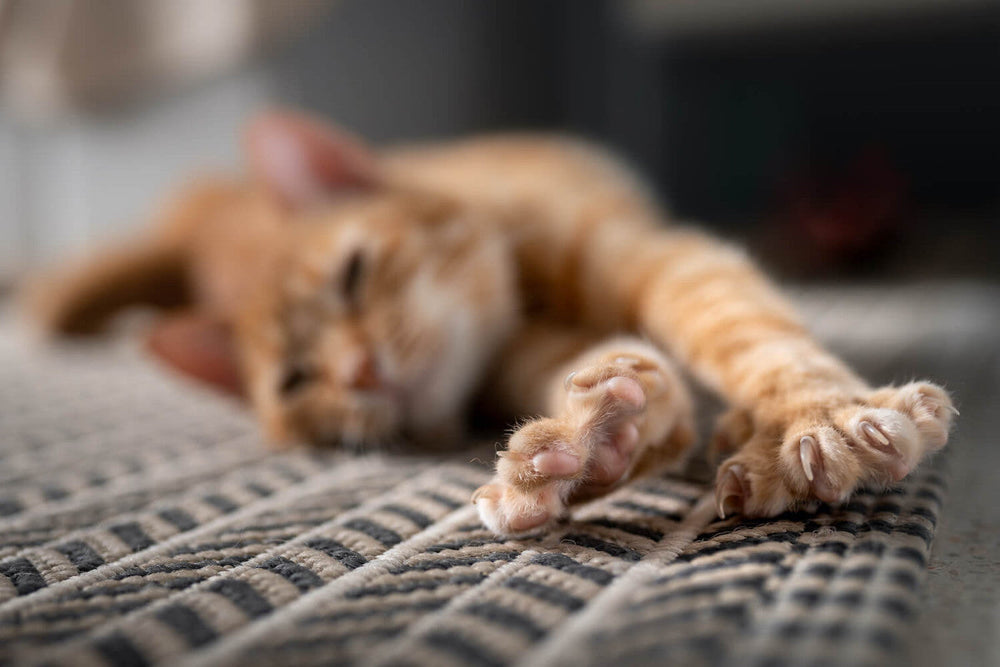
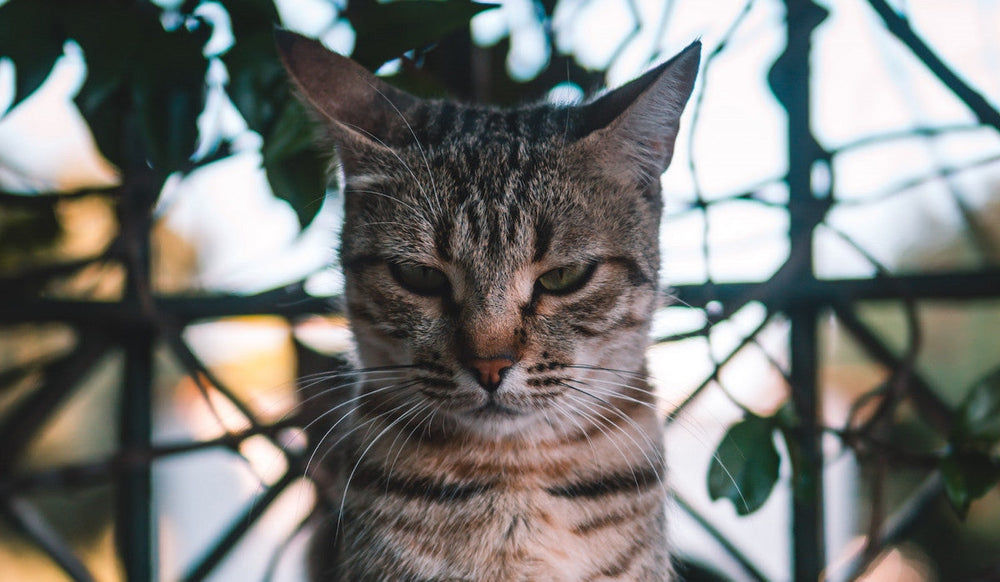
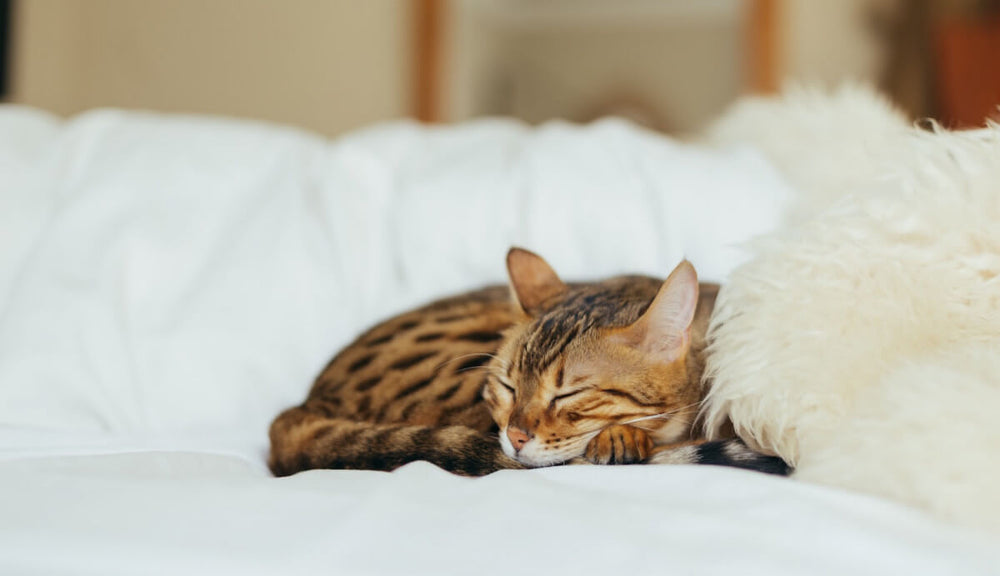
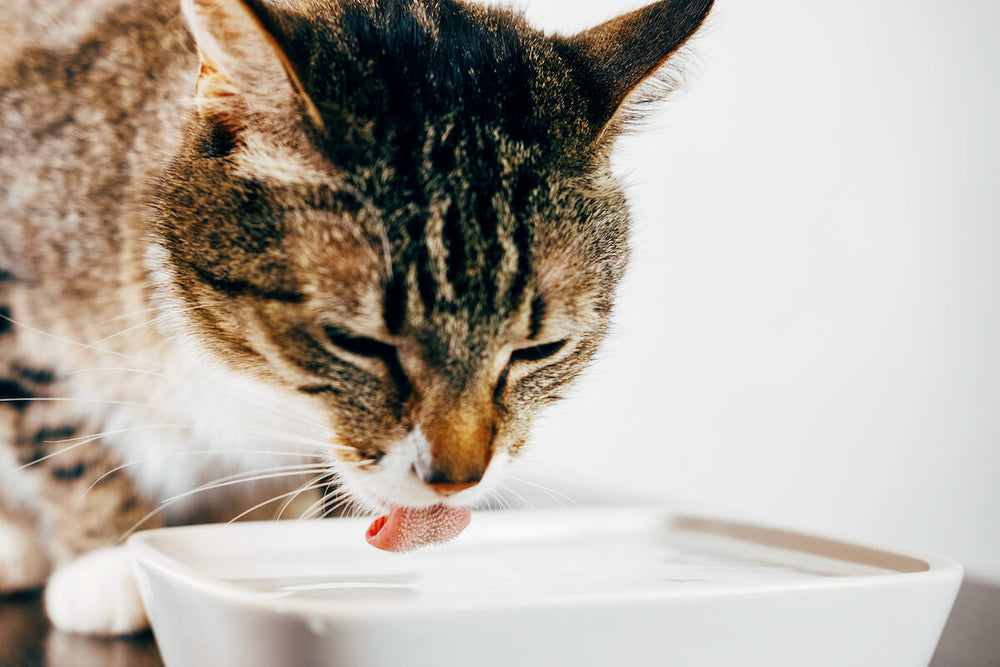
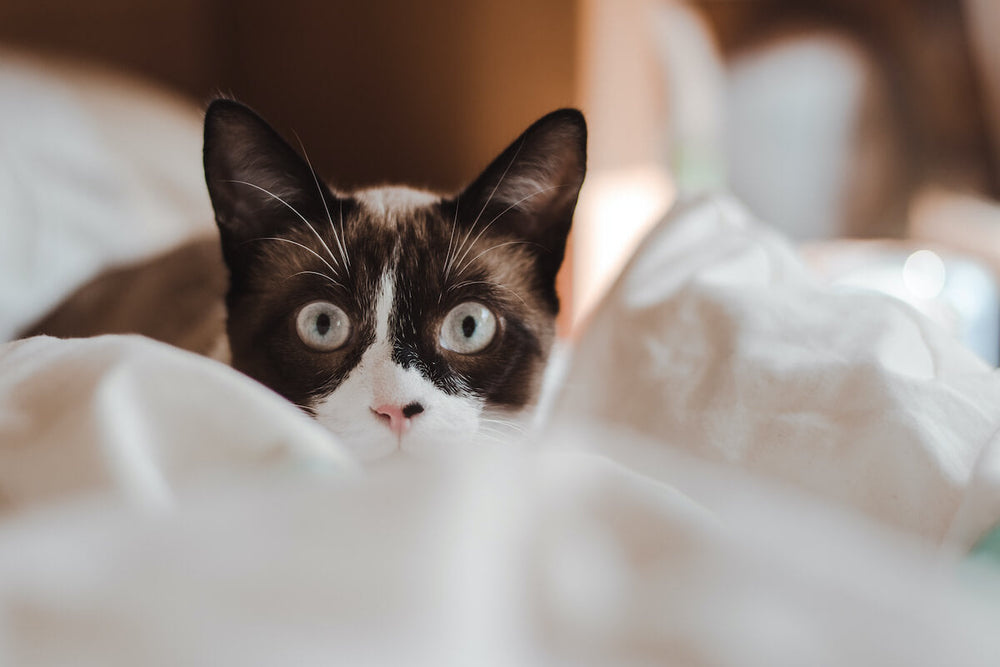
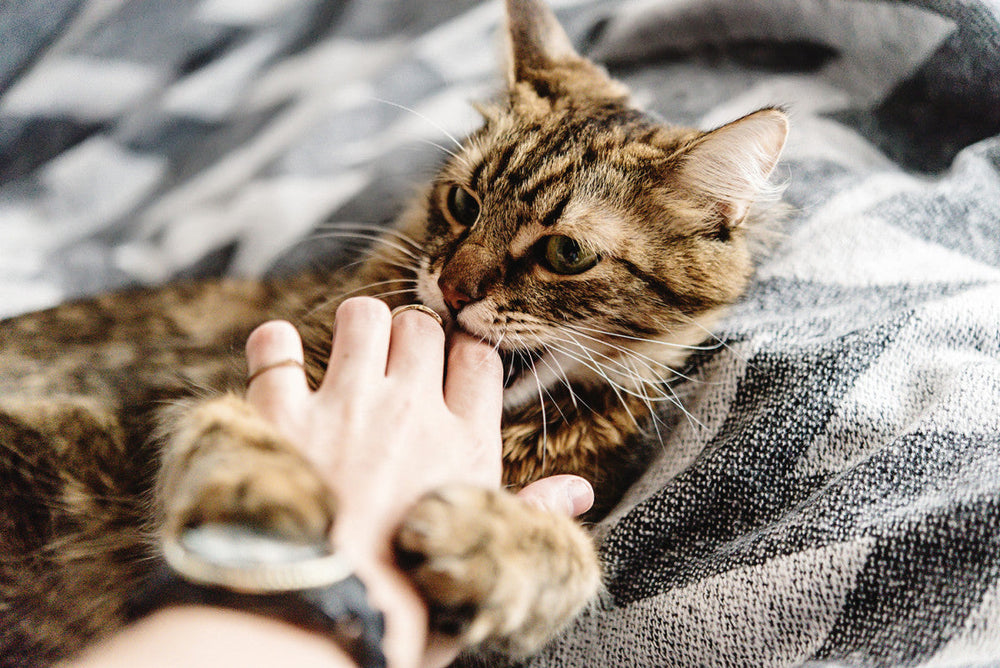
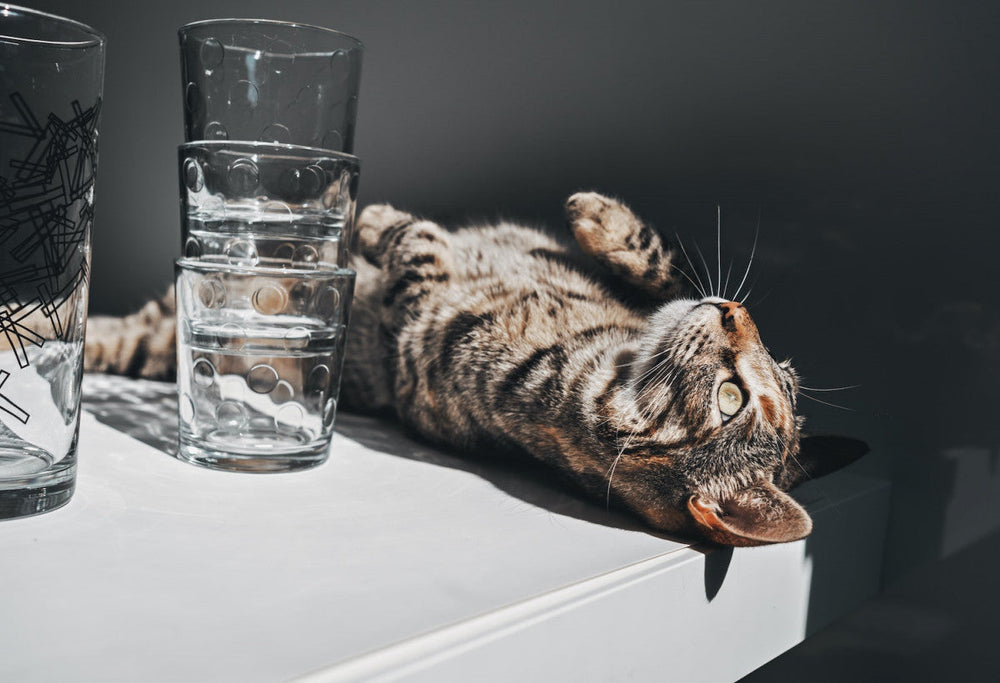
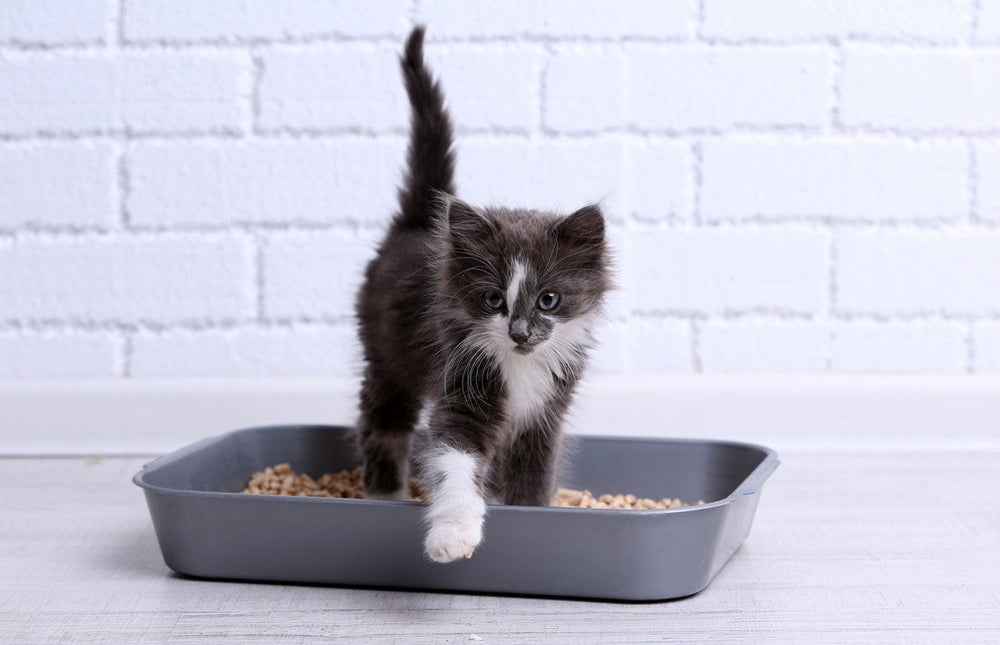



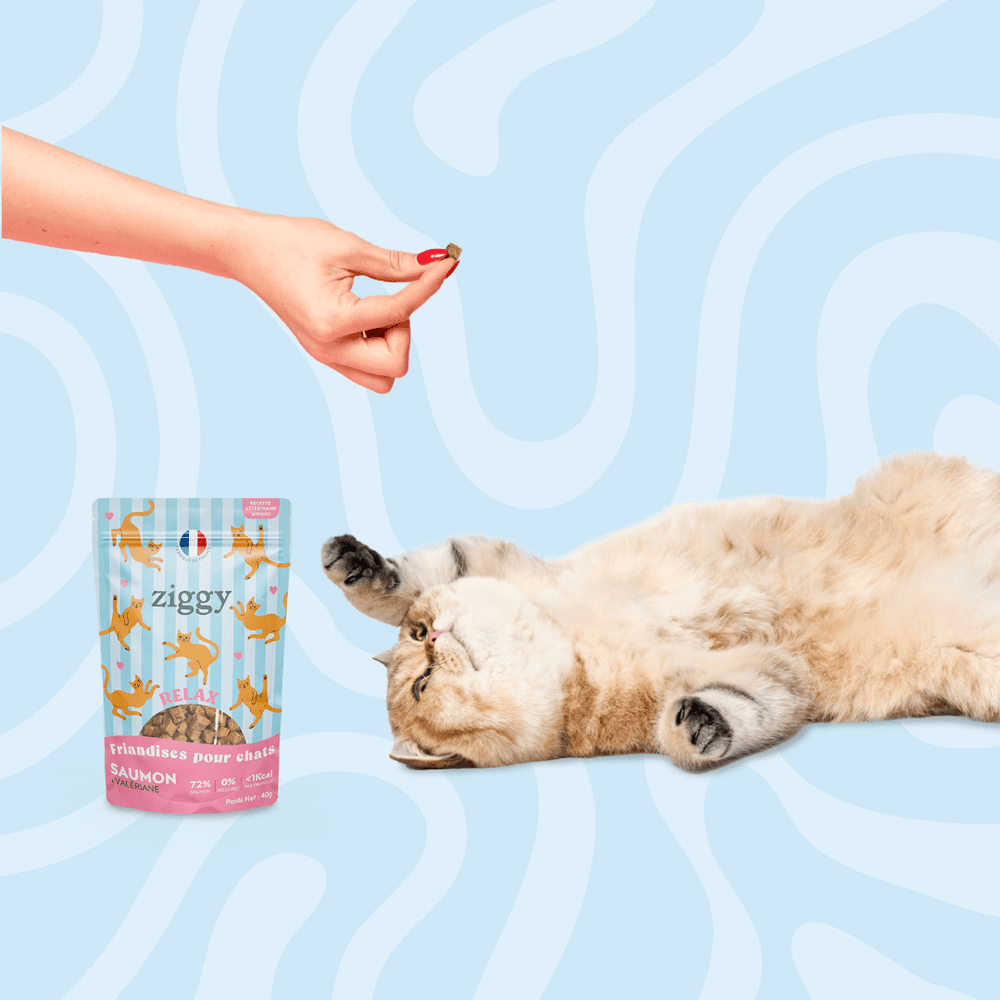

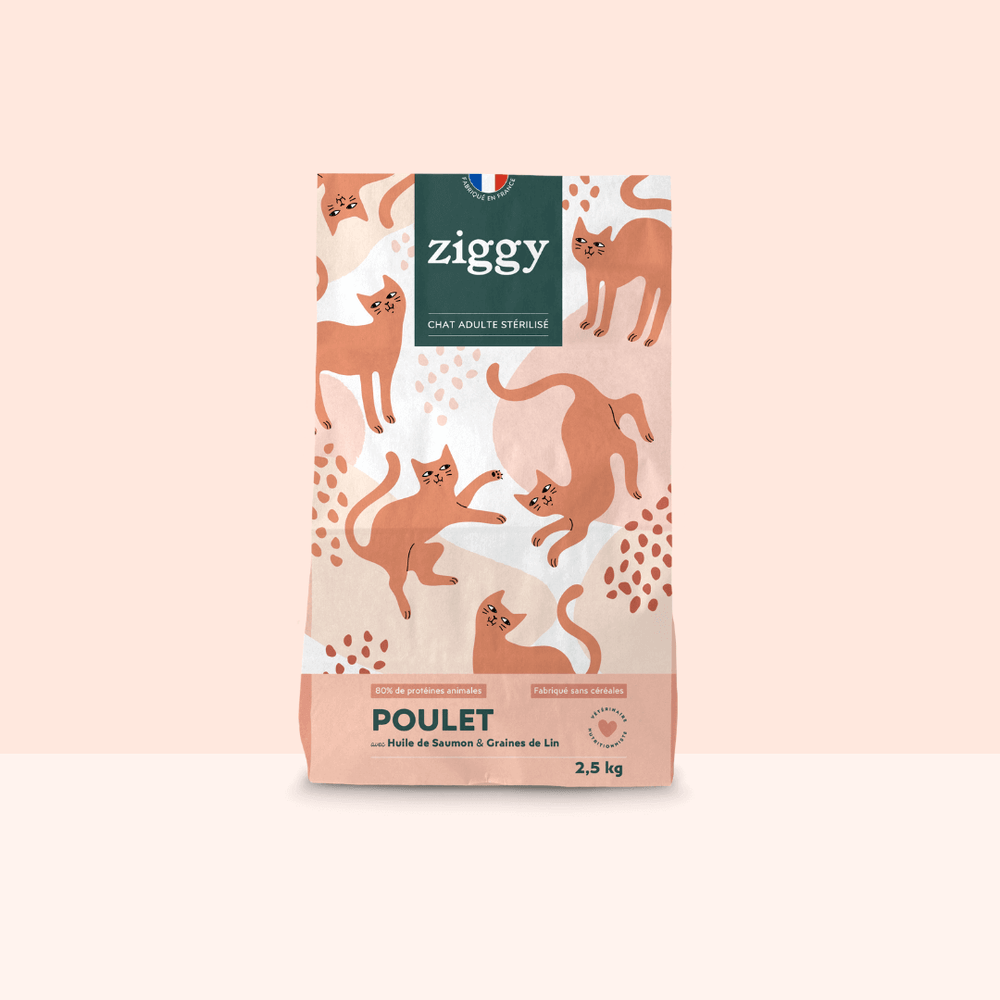

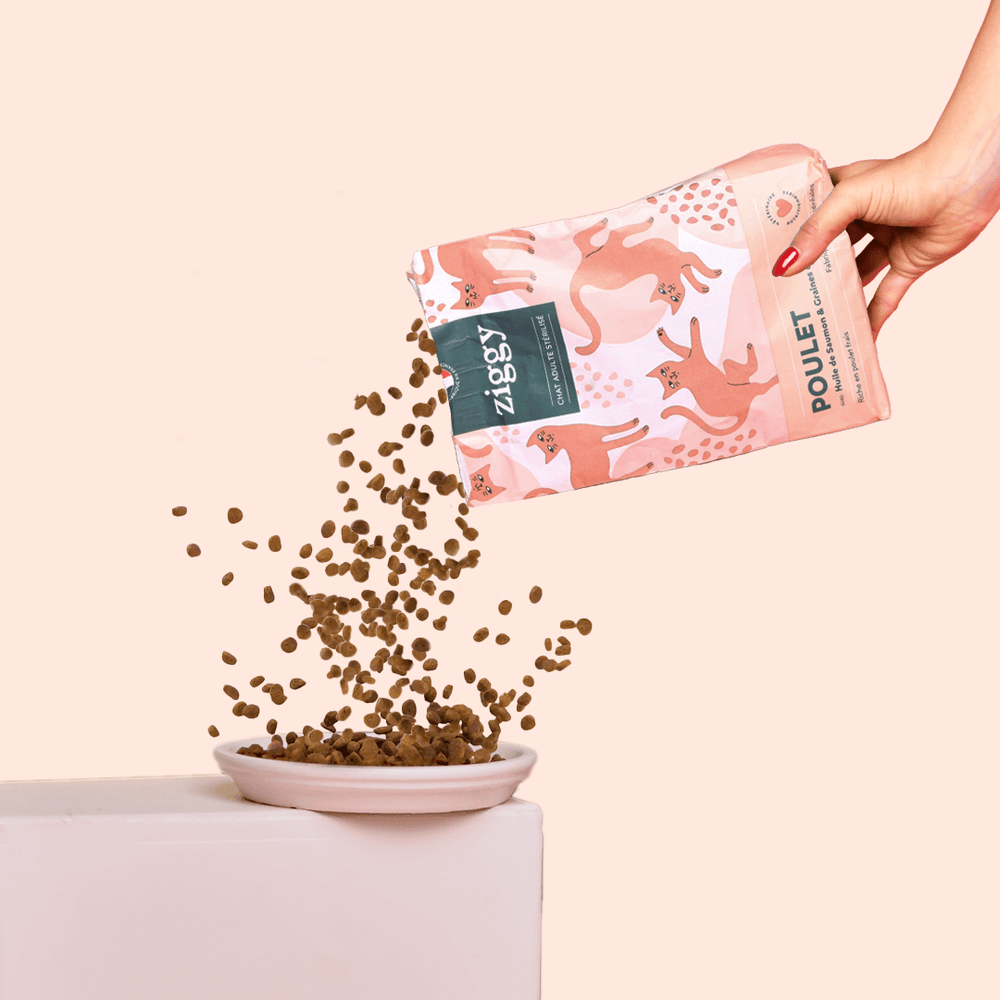
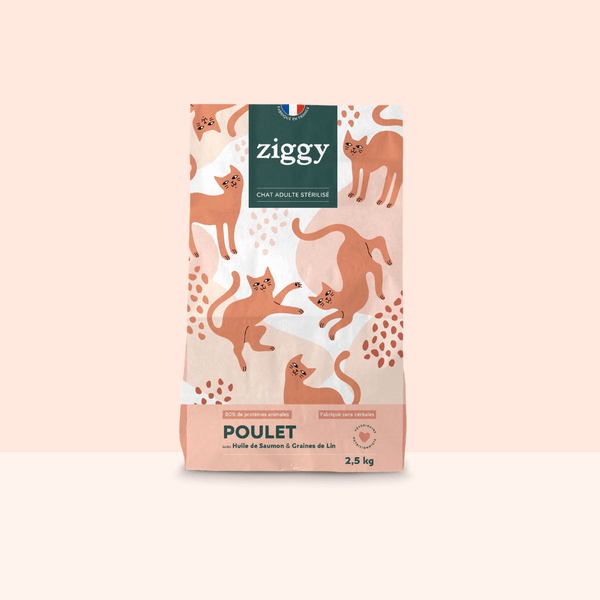

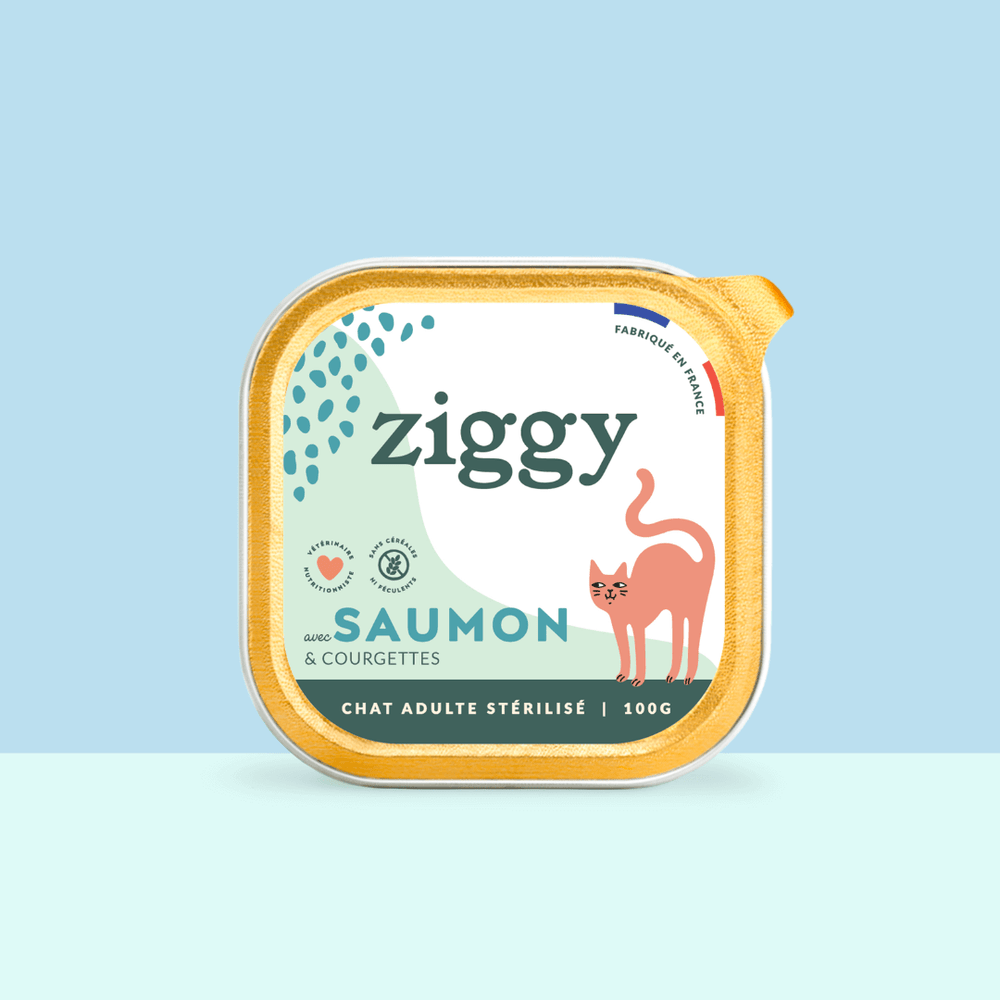







Leave a comment